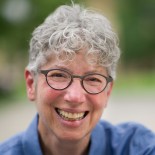Being a Hidden Minority on Princeton’s Campus
Remarks, First-Gen Dinner
September 29, 2015
Welcome! Delighted you’re all here. I want to begin by thanking Dallas Nan and Brittney Watkins, of the Princeton Hidden Minority Council, and Dean Khristina Gonzalez, Nimisha Barton, and Christy Kahler, from my office, and Jen Neill, from Campus Life, for doing the work to put this dinner together. I really appreciate all their efforts on your behalf. And I really look forward to sharing the evening with all of you.
I’ve welcomed you to Princeton before, in various orientation meetings, but I want to take the opportunity to welcome you as the particular population you represent this evening.
Students who are the first in their families to attend college, and students who come from low-income backgrounds, are relatively new to Princeton. The fact that the Princeton Hidden Minority Council, which has co-sponsored this dinner with my office and with Campus Life, is only two years old, speaks to the important demographic shifts that have happened on our campus in the last few years.
Princeton is a place replete with tradition, as you saw at Opening Exercises. Although all of those traditions are meant to welcome new students, sometimes, even for me, they’re instead awkward reminders of a past that didn’t include the very people we now want to orient to campus. After all, for much of its history, Princeton was an institution that enrolled only white men, many of whom came from backgrounds of privilege and wealth.
If you attend the P-rade during Reunions this May, you’ll see palpable evidence of how our university has changed over time. Alums from the 40s and 50s are all white men; men of color begin to appear in the parade under the banner of the late 1960s; women—white and of color—enter Princeton’s history in the 1970s. We’ve only boasted co-education here for 40 years!
I remind you of this only to say that Princeton is a changing institution, and all of you are part of that change. That role provides opportunities and challenges. I want to encourage you to think not just of how your Princeton education will change you, but how you will change Princeton.
We need to balance all those august traditions with innovation, with new ways of thinking about our campus and the world and our common role in its future. I’m really delighted that you’re all here to be part of that process. I hope the community you form among one another and your fellow students and faculty across campus will be inspiring and transformative.
Let me end by reminding you of two things. First, being a “hidden” minority implies that your differences from the norm can’t be seen. To be personal for a moment, two aspects of my own identity are often invisible. My name is Dolan, so people think I’m Irish. But in fact, my grandfather, who emigrated from Russia in the late 1800s, was named “Dolinksy,” but his name was changed by the Army when he was a soldier in World War I. It’s often important to me that people know I’m actually Jewish, so instead of passing, I have to find ways to announce my own ethnicity.
And likewise, because I’m a lesbian, and the social default is heterosexuality, I can either pass as straight or find gracious ways to let people know that I might not fit their presumptions about family and kinship.
Every day, I make decisions about when to announce these two “hidden” aspects of my own identity. And I know you’ll do the same with yours. That can be exhausting. And I certainly don’t have the energy to come out as Jewish or queer all the time. But misrecognition can also be exhausting. When I do it, it’s because I’m proud of who I am and where I’m from. When I do make my identity visible, it can be illuminating and invigorating for me. I hope you’ll feel free to make your own decisions, and to claim who you are and where you’re from, even as you grow and change in ways you can’t even imagine. That’s why we’re all here.
Finally, a word about dinner. I’m a performance studies scholar, so I know that our social interactions are a kind of theatre, in which we signal to one another our facility with cultural rituals. But really, when I sit down at these dinners, I still don’t know which bread plate is mine, or where is my water glass, or god forbid, which fork or knife or spoon I should use for my salad or soup or main course! You’d think that with our focus on environmental sustainability, one fork and knife and spoon and plate would be enough to wash at the end of the night!
All of which is simply to say, don’t worry about it! It doesn’t matter! You’re here to meet one another, to enjoy the fellowship of other students, faculty, and staff, and to begin the conversations that we hope will challenge and sustain you over the next four years and even after you graduate.
Let me now introduce our new Vice President of Campus Life, Rochelle Calhoun. And let me say again, welcome to Princeton, welcome to the Fields Center, and welcome to dinner!
